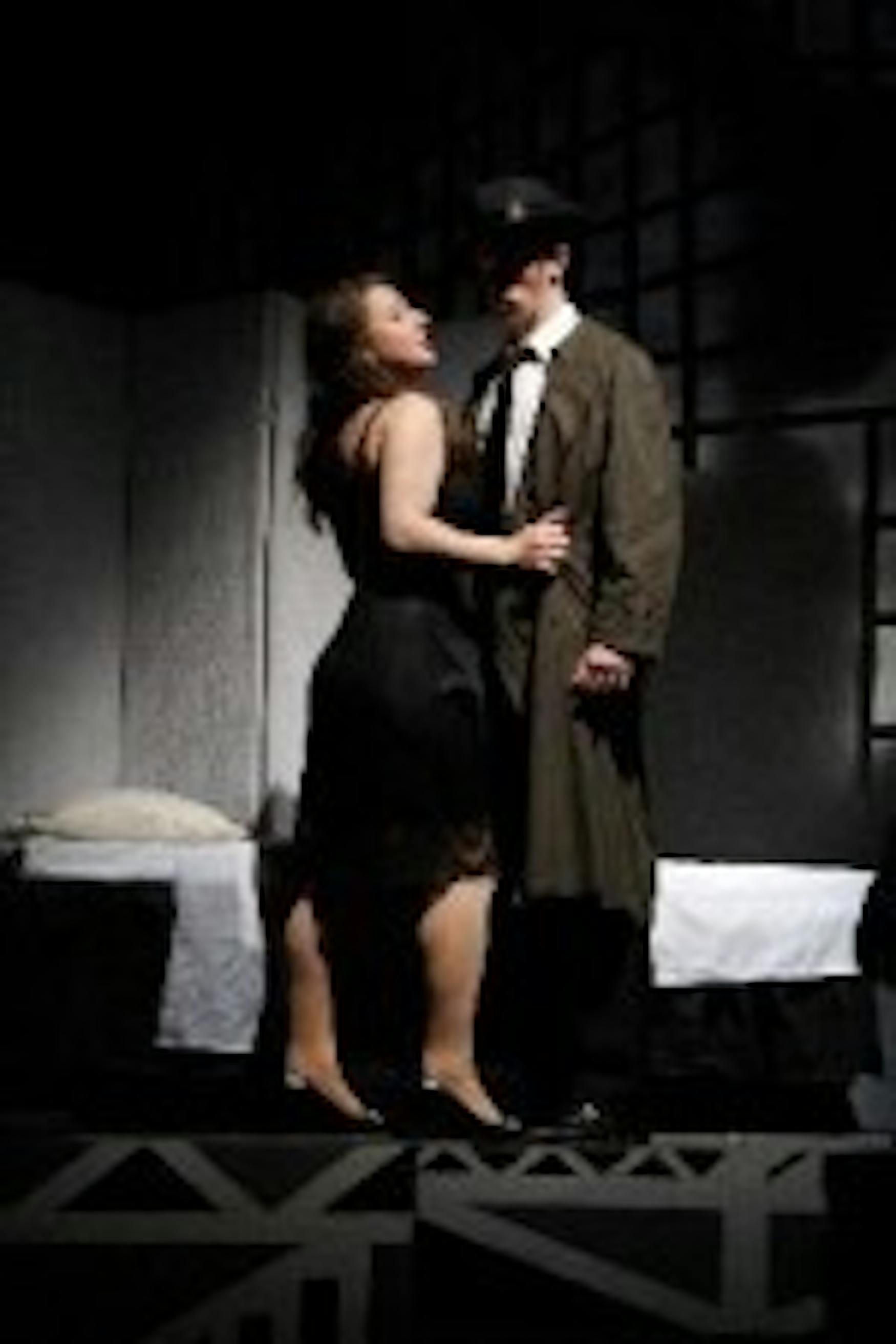Angels' lasts and lasts
An unimpressive script and music weighed down Tympanium Euphorium last week.
Let me begin reviewing City of Angels by confessing that I did not particularly care for the show itself. The script, loaded down with plot holes and self-pity, did not wow me. The music, with a few exceptions, was unimpressive. That said, my job is not to evaluate either of those things. My job is to answer this question: Given that the show is what it is, what did this cast, crew, pit and production staff do with the material they were given?The answer is: a superb job.
City of Angels follows two story lines: the story of Stine (Ross Brown '10), a successful novelist and cheating husband who makes the mistake of going to Hollywood to turn one of his novels into a movie, and the story of Stone (Robert St. Laurence '11), the hard-boiled film noir private eye who also happens to be the hero of Stine's screenplay. As Stine pursues Hollywood fame, he drives away his wife, compromises his morals and ends up envying his own fictional creation.
The cast was excellent across the board, full of strong acting, dancing and especially singing. This may be the best collection of voices I've heard in a Tympanium Euphorium show in my time at Brandeis, and credit for that goes both to the cast themselves and to musical director Matt Stern '08 for casting and refining these exceptional talents.
The standouts of the cast were indisputably Gavi Young '09, Stone's faithful receptionist and Stine's mistress, and Jennifer Faber '09, Stone's lost love and Stine's betrayed wife. In a show that was by turns silly and self-serious, Faber's and Young's characters managed to inspire true sympathy, and both actresses took full advantage of that fact. Meaning no disrespect to the men, who did the absolute best they could with the parts they were given, Young's rueful "You Can Count on Me" and Faber's melancholy "With Every Breath I Take" were the real showstoppers. Other highlights included Arielle Kaplan's '10 playful choreography, the sharp-looking and versatile set and the smart blocking, which clearly established the real and fictional worlds and kept the show's pace at a healthy clip.
Unfortunately, other technical aspects ofCity of Angels weren't nearly as clean. Obviously, this show was incredibly difficult to light, and at many points it was gorgeous, but at bare minimum, the lighting should never unintentionally leave the actors in the dark, period.
And the microphone problems were the unbilled co-stars of the show. Microphones cutting in and out, actors chatting backstage with their microphones still on and microphones failing in the middle of incredibly climactic moments all made an appearance. The worst offender was surely Faber's microphone. If she'd been merely good, I might not have minded that her mike cut out every 30 seconds or so. Unfortunately, she was amazing-when I could hear her, at least. Kudos to Brown, by the way, who had the raw power and exceptional technique to make a microphone unnecessary. His talent was a blessing. Aside from the microphone problems, Stern too often allowed the pit to overpower the singers. Granted, the pit sounded great, but the musicians would have sounded just as great at mezzo-piano.
Those problems aside, there's not much else to criticize. City of Angels was a sharp, fun production with a smartly directed, top-quality cast. It satisfied musically and dramatically. Cast, crew, pit and production staff can all be proud of their work here.
One last note: There was more T&A in this show than in any Undergraduate Theater Collective show since . well, since the last Tymp show, Cabaret. Maybe next semester we can explore the deep emotional issues of women with their clothes mostly on, guys?



Please note All comments are eligible for publication in The Justice.